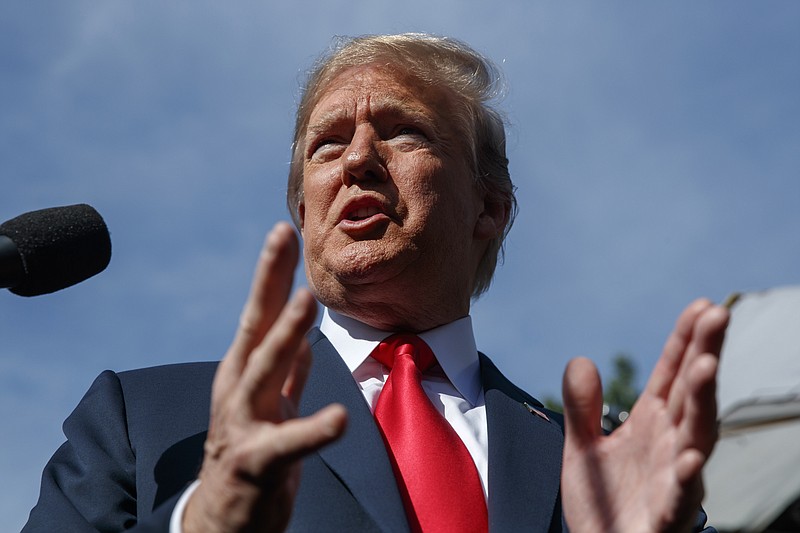Recently Donald Trump proposed pardoning Muhammad Ali, even though Ali's conviction for refusing to be drafted into the Vietnam War had been already overturned.
The hypocrisy of lauding a deceased boxer who protested while simultaneously trashing living football players who protest seems completely lost on Trump.
At the time of his conscientious objection, Ali asked why should he go fight in Vietnam "while so-called Negro people in Louisville are treated like dogs and denied simple human rights?" As Ali put it, "The real enemy of my people is here."
You see, people like Trump venerate black civil rights activists only in retrospect, after their agitation has ceased, often after they are dead, when they are no longer a threat to the status quo, when their true history is rendered in hagiography. Trump and people like him then disparage contemporary activists, as Trump has repeatedly done to Black Lives Matter and protesting athletes.
Earlier this year in the White House, Trump signed a proclamation for the Rev. Dr. Martin Luther King Jr. and lauded him for his choice to "courageously stand up for civil rights of African-Americans."
That is precisely what Colin Kaepernick and the NFL players are doing, and they are condemned for it, just like King was. In 1966, Gallup found that nearly two-thirds of Americans held an unfavorable view of him.
King wrote in his 1963 "Letter From a Birmingham Jail":
"You may well ask: 'Why direct action? Why sit-ins, marches and so forth? Isn't negotiation a better path?' You are quite right in calling for negotiation. Indeed, this is the very purpose of direct action. Nonviolent direct action seeks to create such a crisis and foster such a tension that a community which has constantly refused to negotiate is forced to confront the issue. It seeks so to dramatize the issue that it can no longer be ignored."
Again, this is what the players are doing.
Trump said of the players, "I am going to ask all of those people to recommend to me - because that's what they're protesting - people that they think were unfairly treated by the justice system." But you can't be pardoned if you're dead, if you've either been killed by the system or the system fails to convict your killer.
Trump already knows these cases, but rather than show any sympathy for the dead, he simply cheers for more police, more police pressure, and more police brutality.
During the campaign, Trump traveled to Sanford, Florida, where Trayvon Martin had been killed by George Zimmerman. Trump never mentioned Martin, but said: "African-Americans are living in hell and are living - in, in the inner cities, I mean, they're living in hell. You walk to the store for a loaf of bread, you get shot."
Well, that's eerily similar to what happened to Martin: The unarmed teen was returning from a store with candy and a drink when Zimmerman shot and killed him.
In August 2016, Trump traveled to West Bend, Wisconsin, 40 minutes north of Milwaukee, which had just seen protests over the killing of another black man, Sylville K. Smith. Trump never mentioned Smith's name or the case, but instead focused his anger on the "violence, riots and destruction" of the protesters, condemning the "rush to judgment with false facts and narratives - whether in Ferguson or in Baltimore," and declaring, "The war on our police must end."
The Republican National Convention, where Trump officially became the party's nominee, was held in Cleveland, just 10 minutes away from where 12-year-old Tamir Rice was shot and killed by the police. Trump didn't mention Rice or his case, but instead promised to "restore law and order." As the civil rights legend Fannie Lou Hamer once said, "Black people know what white people mean when they say 'law and order.'" The book, "This Little Light of Mine: The Life of Fannie Lou Hamer" quotes her as saying, "America is substituting cries of law and order for plain respect for blacks as blacks."
That's Trump. He sees demands for black equality as an attack on white privilege; he sees any disdain for white supremacy as a disdain for white people. For Trump, American greatness has a hue. So pardon me if I roll my eyes at him saying of Ali: "He was not very popular then. Certainly his memory is very popular now."
Yes Trump, they hated Ali the way you hate Kaepernick.
Effective protest often only works when it is disruptive and discomforting. If everyone likes your protest, you're doing it wrong. That's how we know these players are doing it right: They are showing that Trump is a present-day Bull Connor.
Last week Trump commuted the sentence of Alice Marie Johnson, who had been sentenced to life in 1996 for nonviolent drug offenses. Her case was worthy, but it can't erase the fact that Trump's Justice Department is actively working to reinvigorate the racially skewed war on drugs.
Trump is using these pardons of black people to play to their celebrity petitioners. But he is also using them as a marketing tactic rather than a statement of principle, to shift focus from predacious systems to personal symbols. In doing so, he hopes to win personal praise while leaving fully intact, or even strengthening, policies that negatively impact black communities.
The New York Times
